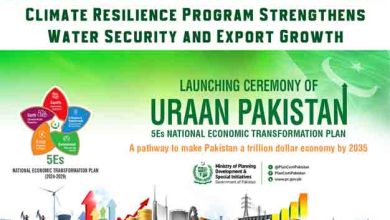Inspiring Women Win Big at Gender Climate Awards 2025: A Bold Leap for Climate Justice in Pakistan
The Gender Climate Awards 2025 celebrate Pakistani women leading bold, community-driven climate solutions. Discover their stories and national climate impact.
Gender Climate Awards 2025 reflect a growing global and national realization: women in Pakistan are not just victims of climate change — they are bold leaders shaping powerful, local climate solutions.
As the nation faces intensifying climate risks like heatwaves, floods, and water scarcity, women remain at the heart of adaptation — leading innovations in sustainable agriculture, renewable energy, and community resilience.
About the Gender Climate Awards 2025
The Gender Climate Awards 2025, now in their third edition, were hosted in Islamabad by the United Nations Development Programme (UNDP) in collaboration with:
- Embassy of France
- Ministry of Climate Change & Environmental Coordination (MoCC&EC)
- Pakistan Poverty Alleviation Fund (PPAF)
- Aga Khan Foundation
- UN Women
- Civil Society Coalition for Climate Change (CSCCC)
The event attracted 275 entries, including 211 in Climate Action and 64 in Climate Journalism, signaling growing grassroots engagement.
A Platform for Visibility and Change
At the opening ceremony, Aisha Khan, CEO of CSCCC, thanked partners and emphasized the need for inclusive climate governance. She stated:
“The Awards aren’t just recognition — they are a national platform to spotlight women as architects of change.”
UNDP’s support aligns with its commitment to gender-just climate governance, including:
- Gender-responsive public finance
- Inclusive disaster recovery
- Equity-driven climate policy under Pakistan’s Nationally Determined Contributions (NDCs)
Meet the Winners: Women Driving Impactful Change
After a rigorous jury process, the Gender Climate Awards 2025 honored two exceptional women:
Anusha Fatima – Climate Action Award Winner
Anusha led a community-led agroforestry initiative in rural Punjab, training women farmers on organic farming, solar irrigation, and climate-smart crop rotation. Her work has enhanced food security and biodiversity across 50+ villages.
Aisha Farrukh – Climate Journalism Award Winner
Aisha’s series on Pakistan’s disappearing glaciers and female climate activists went viral. Her storytelling captured the human cost of climate change, while amplifying voices of rural women fighting back with innovation.

Alt Text: Gender Climate Awards 2025 – Pakistani Women Leading Climate Solutions
Panel Discussions: Transforming Climate Systems with Gender Equality
Two thought-provoking panel sessions highlighted gender-transformative climate strategies:
1. Institutional Insights
Representatives from UNDP, PPAF, Aga Khan Foundation, and UN Women discussed how policies are being reimagined to embed gender equality into climate financing, adaptation planning, and resilience programming.
2. Voices from the Ground
A dynamic exchange between past and present winners shared lessons on:
- Overcoming social and financial barriers
- Mobilizing community trust
- Building intergenerational leadership in climate adaptation
UNDP Deputy Resident Representative Van Nguyen remarked:
“Climate change impacts how women work, eat, care, and survive. Any solution that ignores this is incomplete.”
Global Partnerships for Local Solutions
The presence of Ambassador Nicolas Galey of France highlighted growing international support for inclusive climate action. He reaffirmed:
“France stands committed to supporting grassroots climate leadership, particularly by women. The Gender Climate Awards signal our shared responsibility.”
The event also coincided with the 10th anniversary of the Paris Agreement, reinforcing a shared pledge for climate justice, gender equity, and inclusive progress.
Government Commitment and National Momentum
In her keynote remarks, Dr. Shezra Mansab Ali Khan Kharal, Minister of State for Climate Change, celebrated the winners’ exceptional work and awarded them with cash prizes and commemorative shields.
She emphasized:
- Government commitment to sustaining the Awards
- Creating an enabling environment for women-led climate innovation
- Scaling success stories across provincial climate programs
Her powerful message:
“Women are not just part of the solution — they are the solution.”
Conclusion: Toward a Gender-Just Climate Future
The Gender Climate Awards 2025 sent a clear message: true climate resilience is inclusive by design. As Pakistan reforms its climate architecture, the Awards serve as a national milestone in prioritizing:
- Equity-driven climate planning
- Recognition of local leadership
- Institutional accountability for gender integration
By amplifying women’s voices, elevating their leadership, and investing in their ideas, Pakistan is taking a bold leap toward a climate-smart, equitable future.
Let the world take note: women in Pakistan are not waiting for change — they are leading it.
Internal & External Links
External Resources:
- UNDP Pakistan on Gender & Climate
- UN Women Pakistan
- Aga Khan Foundation Climate Work
- Paris Agreement – UNFCCC
Internal Links:







